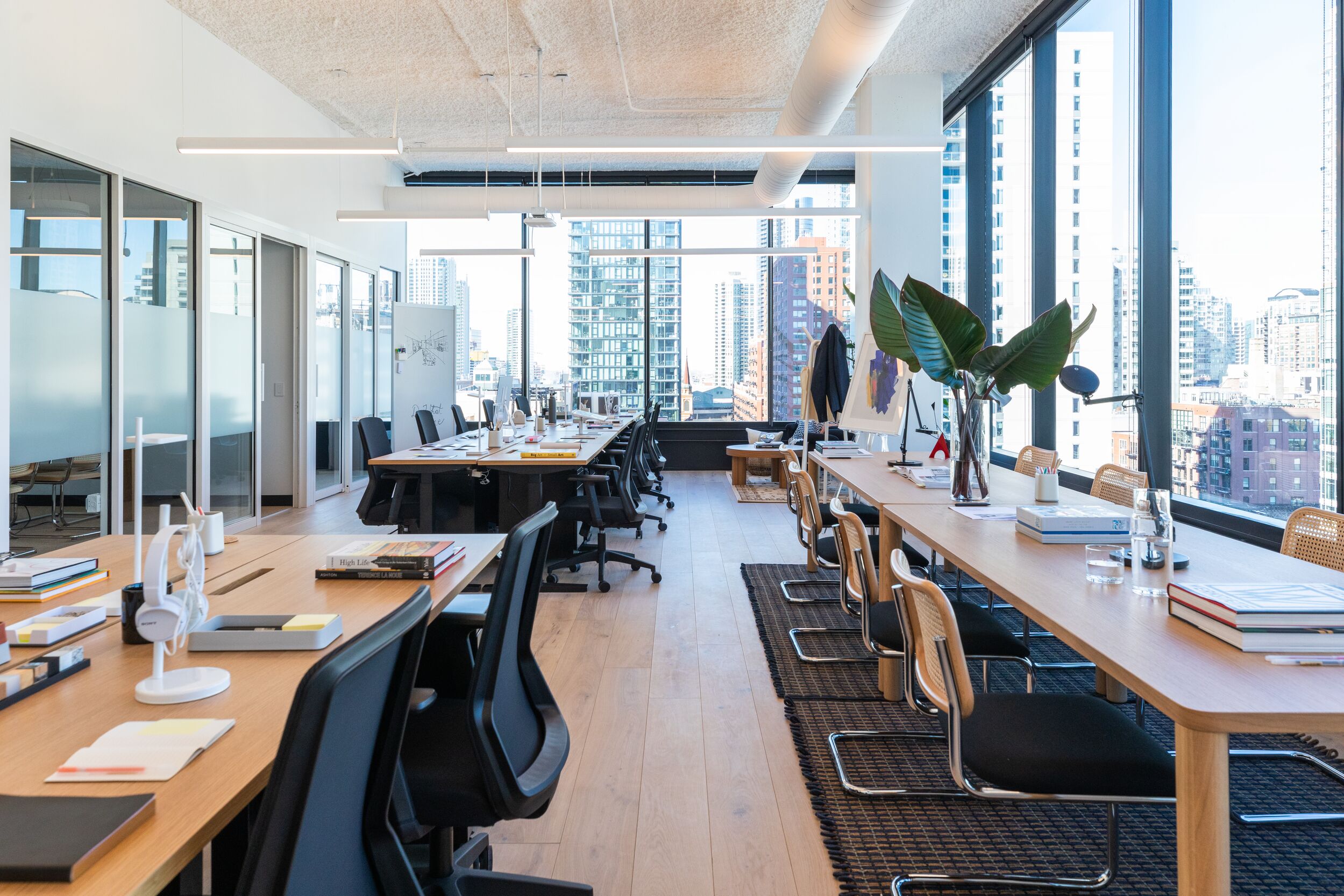Extraordinary businesses often start simply, with a great idea. Turning that idea into a successful company takes hard work, dedication, and a strong team. Made at WeWork showcases the innovative services and products built within WeWork buildings around the world.
From changing the rideshare landscape to encouraging restaurants to adopt sustainable dishware, there are companies working to respect and protect the planet as they generate sales. This Earth Day, we’re highlighting a few WeWork members who are also innovators and disruptors bringing eco-friendly solutions to common problems.
A welcoming entry into a greener lifestyle
After a successful Kickstarter campaign in May 2020, EQUO launched a line of sustainable products for people who don’t want to use plastic or paper straws but also don’t want to carry around and wash metal straws and utensils. The food utensils company, based in Ho Chi Minh City, Vietnam, offers consumers straws that are made from alternative materials like coffee, sugarcane, rice, grass, and coconut.
Founder Marina Tran-Vu says her company adopted a friendlier approach to being environmentally conscious. “Our foray into the sustainable industry with EQUO is an attempt to change the way sustainable brands approach consumers, through a welcoming message of ‘every little action helps,’” she says. “It’s a stark contrast to the all-or-nothing dogma that often repels consumers who are just starting or looking to switch to a greener lifestyle.”

EQUO also chooses to work with local farmers to grow and harvest the natural materials for their products. All of the straws are compostable and biodegradable, and most of the straws are reusable within one day of first use.
“Our aim is to make plastic-alternatives widely available with disposable drinking straws and utensils, in order to force production to slow down and eventually be eliminated altogether for single-use plastics,” she says.
Want to take action and get your hands on some sustainable straws? Use code EARTH2021 at checkout on EQUO’s website to get 20 percent off all straw purchases.
Connecting smart homes with green solutions
Okos Smart Homes creates opportunities for homeowners to turn their houses into energy-efficient smart homes. Serving the Ontario and Quebec areas in Canada, Okos Smart Homes sells smart devices and offers installation and support services to homeowners. The company also works with utility companies to lower greenhouse emissions and reduce the demand on the grid.
Boris Besner, the company’s president and CEO, says his business is part of a growing trend: “We are seeing a huge rise in cleantech and environmentally friendly businesses,” he says. “VCs and banks are now paying more attention than ever to the sector, and the future looks promising.”

Besner says his company has helped clients save up to 23 percent on their heating and cooling, demonstrating an 11 percent reduction in GHG emissions.
If you live in the Ontario or Quebec provinces, use promo code WEWORK to receive a free Google Nest Mini with your order at Okos Smart Homes.
Revamping employee food services
Serviço de Alimentação Inteligente e Sustentabilidade (or Smart Food Service and Sustainability) is a food service company born by one man’s desire to make a lasting impact on the world after the birth of his daughter. SAIS executive director Walner Sovi wanted to serve healthy food to factory and office workers in an environmentally conscious way.
Today, the Brazil-based cafeteria and consulting business gives workplace cafeterias and restaurants in Sao Paulo an eco-friendly makeover, changing everything from the menus down to the cleaning products. SAIS also replaces disposable plastics with utensils manufactured from coconut fiber, slashing their natural resource consumption by half. Sovi said even waste is handled sustainably. It is run through processors and made into organic fertilizer instead of being sent to landfills.

“We are proud to remove from circulation more than 2 million disposable cups in one year,” Sovi says. “The impact of this seems small, but added to this number comes all the impact of manufacturing and the logistics chain. Imagine if big companies adopted measures like these, the impact of that would be incredible.”
SAIS also offers data collection and guidance regarding sustainability to companies throughout Brazil. It advises businesses on ways to mitigate environmental impact in a profitable way, because without taking care of the earth, there is no business.
“No planet, no profit,” he says.
If you are located in Brazil and want to make your cafeteria eco-friendly, mention WeWork when you contact SAIS and you will get a free look at SAIS’s data collection and information survey.
All-electric ridesharing
Ridesharing company eCarra seeks to shake up the rideshare market by offering customers premium electric cars to get where they need to go. The company partners with electric vehicle owners so that their cars are not just sitting in their driveways. “Because parked vehicles don’t cause change!” says cofounder and CEO Rock Robinson.
The company’s fleet is made up of Tesla vehicles, and eCarra is committed to planting a tree for every ride a customer takes. It operates in the Dallas region but licenses its platform to other fleets globally. Robinson and team planned out the business model carefully, examining all options and eventually landing on the greenest one.

“We knew that internal combustion engines, or ‘ice’ vehicles, would eventually die. So, for us, starting a business model based on a concept that had a definite death certificate wasn’t very attractive at all,” he says. “We knew that going 100 percent electric was going to be the only way we would place ourselves as leaders to innovate mobility.”
Going for an all-Tesla fleet was the harder route, but it’s something Robinson is proud of. In the past three years, eCarra, which brands itself as “the new #GreenStandard of ridesharing,” has not had any gasoline or petroleum costs. It has also made a contribution to lowering emissions around the Dallas-Fort Worth area, he says.
Want to take a ride with eCarra? Use the code EARTHDAY at checkout for a 20 percent discount on all rides and deliveries.
Taking the waste out of takeout
Like many office workers, Caroline Williams would get takeout lunches regularly. While she may remember to bring a reusable coffee cup for her cup of joe in the morning, she’d often forget to bring a reusable bowl for lunch. When she did remember, she hated to wash it afterward.
So Williams and her cofounder worked to design a system of getting and using reusable takeaway bowls that was as convenient as using a single-use container. Thus, junee was born.
Starting this summer, junee will supply partner restaurants in London’s Shoreditch neighborhood with junee bowls. Employees working at participating workspaces can get their meals made to order in the junee bowl instead of a single-use bowl. When the person is finished with their lunch, they can return the bowl to a junee bin, located within the office. The junee team collects the bowls, washes them, and redistributes them to restaurants.

“We estimate a single junee bowl will save up to 30 kg of CO₂ over its lifetime compared to that of disposable packaging—that’s equivalent to the emissions you generate driving a car from London to Birmingham,” Williams says. “This comes from the simple fact that it takes a lot of energy and a lot of resources to make new stuff. The more we reuse things, the less we need to produce.”
Junee is an innovator in the food service business, but Williams says it is one of many companies looking toward sustainable solutions. “We’ve found that many food service businesses are eager to reduce the impact of their packaging,” she says. “While compostable packaging is the only option for them today, we are confident reusable systems like junee will soon play a critical role in greening the packaging supply chain of restaurants.”
In the end, it’s up to consumers to choose products that work for them, their wallets, and the planet. These eco-friendly solutions give more people more opportunities to consider how their purchases can impact the health of the planet.
Kim Key is a tech and culture journalist living in Atlanta. She’s written for The New York Times, PCMag, Mashable, and CNN.
Rethinking your workspace?










